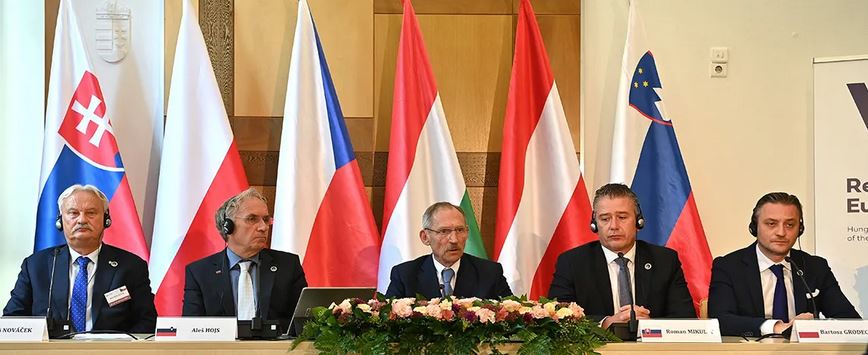By: Bettina Nemes
The EU’s external borders must be protected from illegal migration.
As the Hungarian Interior Minister Sándor Pintér informed on Tuesday at the meeting of the Interior Ministers of the Visegrád Group (V4), Austria and Slovenia, there was complete agreement on this issue. In a joint declaration, the interior ministers set out their position so that they can also assert it within the EU. The situation in Afghanistan is an enormous challenge, as no one can say at the moment how many people will make their way to Europe.
Pintér thanked Austria for participating in the border protection. The Czech Republic sends 50 soldiers to the border, and joint border guards are carried out with Slovenia. This shows that it is not only Hungary that protects the EU’s external borders. He referred to the current migratory pressure from Belarus. In 2014, 44,000 illegal migrants were registered in Hungary from January to September 15, 2015, ie 391,000 illegal migrants until the border fence was erected, after which the wave subsided again. However, so far this year, 84,000 illegal migrants have attempted to enter Hungary again.
The Slovenian Interior Minister Ales Hojs was surprised at how many illegal migrants arrive at Hungary’s borders every day. He described the cooperation between the neighboring countries as extremely good. Roman Mikulec (Slovakia) condemned the political abuse of migrants by Belarus by exerting pressure on Poland. At the same time, the support of the neighboring countries of Afghanistan and the transit countries to protect Europe from migration is extremely important. In addition, the Schengen area must be expanded to include Romania, Bulgaria and Croatia. Jirí Novácek, Deputy Minister of the Interior of the Czech Republic, said that the migration crisis of 2015 should not be repeated. That is why solutions are sought to offer help on site where it is needed. The Polish Interior Minister Bartosz Grodecki emphasized the need for the V4 to appear together. He described the joint declaration that has now been drawn up for advising the EU’s interior and defense ministers on Friday as a suitable instrument.
This article was first published by BUDAPESTER ZEITUNG

